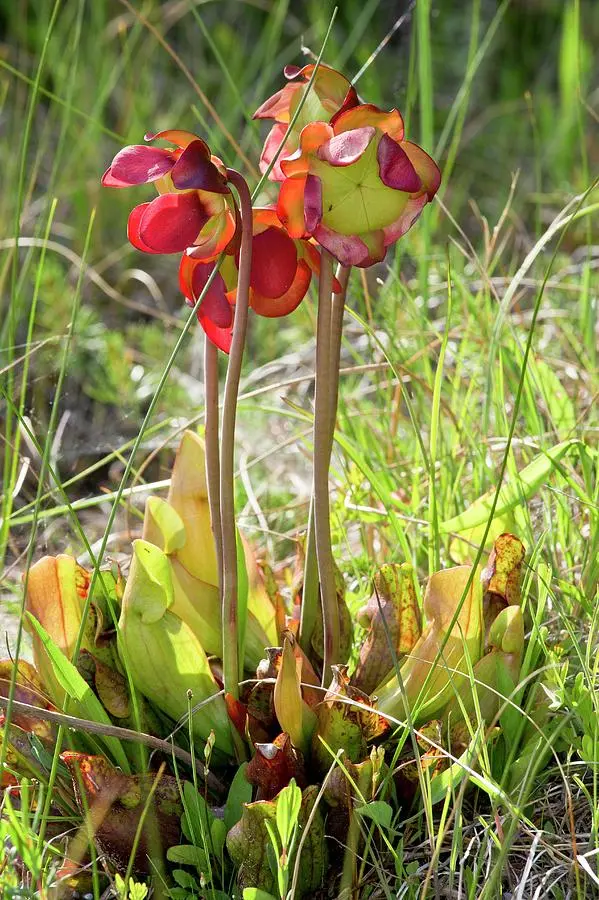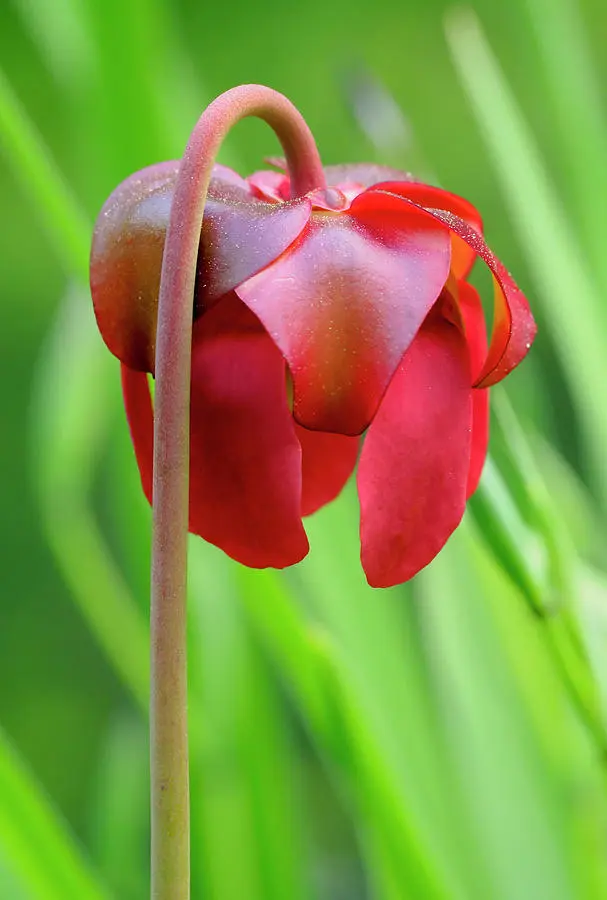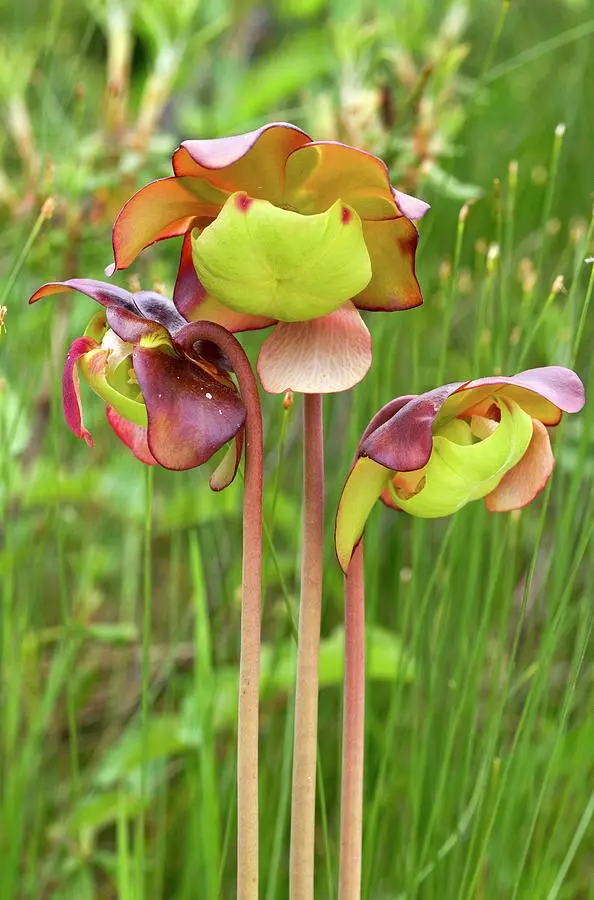I mean if you kill your pollinators you’re not going to reproduce, so that makes sense the genes survived.
Get that randomized “trial and error” crap out of here. Everyone knows nobody and nothing ever uses trial and error, because it can’t deliver results.
Genetic mutation is always occurring. It’s not trial and error, there is no intent to do anything. You make it sound like a function but it seems like more of a failure to me.

By any chance did you drop an /s?
It’s cute that homeboy thinks it’s learning.
People tend to have a really hard time understanding evolution, and attribute human characteristics to it.
Which I think is really fine for casual internet conversation. It’s not even attributing human characteristics, just mis-characterizing what is happening. But it’s a useful way to short hand it, especially if the discussion is more about the result than the process.
Yeah, there’s absolutely nothing about the wording of this post that indicates they actually believe “it’s learning” as opposed to just using quite a common shorthand. Calling that out is the laziest, most bad-faith type of “um, actually” behaviour IMO.
Personally, I’m not a fan of these shorthands, because I’ve seen many people (including me when growing up) make some pretty glaring logical errors based on them. And particularly with creationists also existing, I’m really wary of people thinking it’s an intelligent process.
Agreed, and I spent like a decade in protein engineering and pre-biotic chemistry.
And if someone really wants to be a pedant about it, go ahead and prove conscious “intent” is inherently different than, not just a more complex form of, what’s going on here. If someone’s managed to solve all of the philosophy around consciousness, self, and intent, they could really save us all a bunch a time! Until then, pedantically, you’re not wrong to say the plant “knows” to do this as much as I “know” to pay my rent; it’s all just chemical reactions based on environment.
… Or we could allow people to enjoy the pressures and reasons that give rise to the subtle aspects of organism in this complex ecosystem we call earth without being a dick about it, and trust that the level of language specificity will increase/decrease commiserate to the degree of precision the topic requires.
go ahead and prove conscious “intent” is inherently different than, not just a more complex form of, what’s going on here. If someone’s managed to solve all of the philosophy around consciousness, self, and intent, they could really save us all a bunch a time!
Ha, that’s good!
And good timing. Just yesterday I watched an interview with the author of a book about intelligence in plants, and the interview dealt a lot with questions around the meaning of intelligence and how certain adaptations seen in plants could arguably count.
Evolution is best described as “survivorship bias.”
Biologically powered bruteforcing
Someone should tell them the ones who didn’t do this fucking died.
That would break his heart
Pitcher plants do the same thing

They have these really unique looking flowers too


Then there’s the pitcher plant that isn’t really carnivorous, but relies on excrement…it’s not so much a pitcher as a toilet: https://en.m.wikipedia.org/wiki/Nepenthes_lowii
Ah so that’s why Victreebel is a poison type
Victory bell is probably based off of highland pitchers (Nepenthes). Fun fact: In some parts of the world they’re called “monkey cups”. I don’t know if the monkeys actually drink out of them or not but that’s where the name came from lol.
Another fun fact is the Yellow Trumpet pitcher plant’s (sarracenia flava) flowers smell like cat pee.
Damn, I had no idea these flowered. I could never keep them alive either.
deleted by creator
pitcher plant is just a generic term for a few species, including sarracenia
Yeah sorry! I had deleted it I didn’t see where you mentioned it was a pitcher and thought you meant vft!
Also, the energy to make that flower is an enormous strain on the plant. Usually, growing that flower causes most or all of the carnivorous leaves to die, and therefore often growing that flower spells the death of the plant.
Interesting. I would imagine that the plant has a lot of energy since insects are way more rich in nutrients than light and water, no?
The specific nutrients it gets from the bugs are nitrogen and phosphorus, which plants normally absorb through their roots. It evolved carnivory to compensate for the poor soil in its native habitat instead of developing its roots like other plants in the area, so it can’t pick up the nutritional slack with its atrophied roots.
In addition, every time a leaf closes and tries to digest what it caught, it uses a lot of energy. Flowering always is a big strain on a small plant, no matter what species, so when this strain is introduced the number of carnivorous leaves becomes a difficult risk/reward calculation, and plants are not known for cleverness.
We’re used to getting our energy and building blocks from our food. Plants get their energy from the sun, and their building blocks from the air (CO2). They get water and some minerals, but a plant is made up off solidified air. It’s like if you could be solar powered living off just air, water, and an occasional multi-vitamin.
Anyway, carnivores don’t really get energy from their prey, just the nutrients. It’s like self fertilizing.
That’s not really how it works. Going from one food chain level to another you lose about 90% of the energy like:
Plants - photosynthesize 100% of solar energy available
Herbivores - eat the plants, losing about 90% of the total energy in the process of breaking it down and making it usable.
Carnivores - eat another animal, losing another 90% aka (1% of total energy)
Plus, consider that photosynthesis is capable of creating all the sugars and that we can convert sugars into fats and proteins and stuff using biological processes (this is essentially why plants need nitrogen and phosphorous to grow, but the generally get that from the soil and really don’t need a lot.
I know carnivores plants are plants, but I never really thought of a venus flytrap’s flower.
Understanding it needed to do that is a bit of personification. The Venus fly trap that grew a slightly taller flower stem got pollinated more. That genetic mutation overtook the species as competition for pollination grew more difficult for the shorter flower stemmed. Evolution is cool an all, but let’s not confuse it for plants knowing or deciding to do anything.
I had an idea once to make a travel pack sized blanket for air travel.
Venus Flight Wraps

Or if that’s too subtle:

😘
It didn’t “grow to know” shit. The ones with short flowers didn’t breed as frequently. The end. Mystery solved.
Always absolutely wild to me that these things are native to the Carolinas
not only native, but the ONLY place. I’ve got carnivores from every continent (accept Antarctica, obviously), and thats STILL my favorite fact.
It does make sense they’re so rare though. Most carnivory you can picture the evolutionary path: Something had a mutation that kind of made a cup, something had a mutation that kind of made the leaves sticky… etc. You can see it happening one step at a time with minor advantages (and therefore survival) at each step, until they kept compounding into more and more complex and specialized structures.
For a VFT… multiple things had to happen at once. There’s no advantage to the motion until you can also digest and adsorb the material. There’s also no advantage to a partial motion that can’t trap an organism. It’s really wild they exist!
It started as a flowering plant. As it got some early carnivorous genes, if it killed the pollinators it would not reproduce.
It slowly turned into the terrifying plant we know and love.
Before it got jaws it was a glue trap. Venus flytraps are an evolutionary offshoot of Drosera, the sundews.
Cute story fren, but natural selection isnt a willful choice by the organism 💕
Obligatory crime pays but botany doesn’t mention. There is this really cool episode of a huge carnivorous plant collection:













